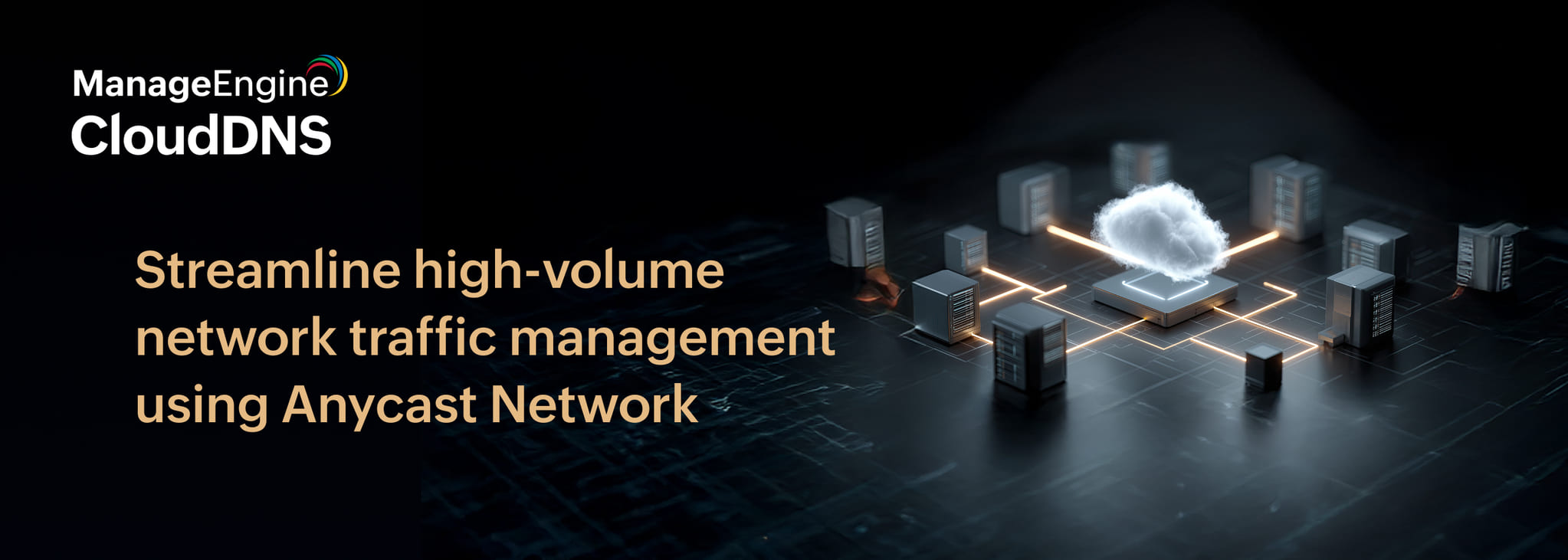What is an Anycast network and how does it help handle high volume network traffic and effective query resolution?

When an organizations' DNS authoritative server faces high volume of network traffic from multiple client devices, they would need more than one DNS server to handle them.
But manually routing the network queries to each DNS server in the network would be a tedious job for the network admins. And in turn, this would slow down the network service responses, leading to multiple delays and disruptions.
The Anycast network method would help in simplify the query distribution across your organization's DNS servers and improve the response rate by routing to the nearest server.
What is an Anycast network?
Anycast is a network routing method used to distribute a high volume of incoming queries to multiple DNS servers in a single network. This method involves routing queries to the nearest available DNS server, allowing the query to be resolved faster.
Multiple DNS servers will be located in different locations, but they will all be associated to a single IP address. The Border Gateway Protocol (BGP) acts as the routing system; evaluating traffic across the available DNS servers to identify where a query needs to be routed, then selecting the best and nearest server for routing.
As all DNS servers will be configured with the same Anycast IP address, BGP can easily analyze and find the right one for quick and effective resolution.
What are the benefits of using an Anycast network?
An Anycast network's simplified query distribution and resolve benefits organizations in several ways.
Mitigates network latency
Anycast intelligently routes queries to the nearest server, based on the clients' region. By shortening the path that data travels, it significantly reduces round-trip times and improves overall performance for end users.
Prevents DDoS attacks
Anycast distributes incoming traffic across multiple servers. This distribution of traffic prevents any single server from being overwhelmed, helping to mitigate large-scale DNS attacks (like DDoS attacks) and maintain uninterrupted service.
Ensures DNS service reliability
With multiple servers sharing the same IP address, DNS queries are automatically resolved by the closest DNS server. This redundancy ensures consistent and reliable DNS resolution—even if some nodes go offline or face network issues.
Balances load distribution
Traffic is automatically spread across all available servers in the Anycast network based on network routing decisions. This prevents individual servers from becoming overloaded, optimizes resource utilization, and enhances scalability.
Increases availability
If a server or data center becomes unavailable, BGP routing quickly redirects traffic to the next closest available server. This seamless failover guarantees high service availability, minimizing downtime and ensuring continuous access for users.
Handle high volume of network traffic and resolve DNS queries effectively with ManageEngine CloudDNS
ManageEngine CloudDNS offers Anycast network routing, helping network admins in distribution queries across multiple DNS servers and transferring queries to the nearest servers, allowing for a faster and effective query resolution.
Try ManageEngine CloudDNS for free to explore how an Anycast network can be configured!